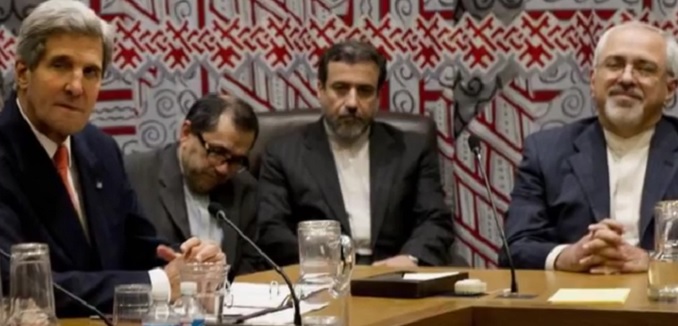Iranian officials over the weekend acknowledged plans to hold meetings with the United States and Russia outside of ongoing negotiations between the P5+1 global powers and Tehran, a development that media outlets described as everything from evidence that the parties were scrambling to reinvigorate faltering talks over the Islamic republic’s atomic program to a breakthrough in bilateral relations.
Reuters characterized the meeting as coming “after the most recent round of nuclear talks between Iran and the six powers in Vienna last month ran into difficulties, with both sides accusing the other of having unrealistic demands.”
Agence France-Presse (AFP) for its part quoted Iran’s official IRNA news agency, which was in turn quoting Iran’s Foreign Ministry, announcing Tehran’s intentions to hold “negotiations with… American counterparts,” which the wire characterized as “unprecedented.”
Iran has consistently denied it is seeking nuclear weapons but wants an independent atomic energy program. Following the last round in Vienna, Iran urged western powers to resist pressure from third parties not directly involved in negotiations over its nuclear activities, in a clear reference to Israel. Israel and lawmakers in the US Congress have repeatedly warned against lowering the pressure — in the form of economic sanctions — on Iran.
Calls by Arab states for a hard line on Iran, which have included transparent threats of nuclear proliferation across the region, were not mentioned by the outlet.
That the Iranians use divide-and-conquer tactics in nuclear negotiations has become somewhat commonplace. Iranian President Hassan Rouhani bragged in his autobiography that he had managed to divide the Americans and Europeans in the early 2000s as Iran’s nuclear negotiator, and that the moves had enabled Iran to lock in nuclear progress.
The “widen the transatlantic gap” strategy, as the author calls it, was successfully deployed by the mullahs during the George W. Bush administration, most prominently when EU officials—unhappy with what they regarded as White House bellicosity—seemed especially solicitous of Tehran…Barack Obama’s promise of engagement once he came to power, Mr. Mousavian says, effected a “switching of roles between America and Europe.” In other words, it was America’s turn to try out dangerous naiveté.
Last April, Iranian Parliament Speaker Ali Larijani urged European nations to “chart an ‘independent’ foreign policy course” from Washington. Two weeks ago rumors emerged that the White House was considering potential bilateral negotiations with Iran – which would partially freeze out France and Britain – with the news breaking just a week after Reuters assessed “with concerns rising among Iran’s foes, especially Israel and the Gulf states, that the United States has turned softer on Iran, France has become a key player in defending their interests.”
Evidence that U.S. diplomats are being outmaneuvered by Iranian counterparts would likely become an issue as Congress gears up for a series of hearings evaluating the progress of the nuclear negotiations.
[Photo: News of the World / YouTube]




